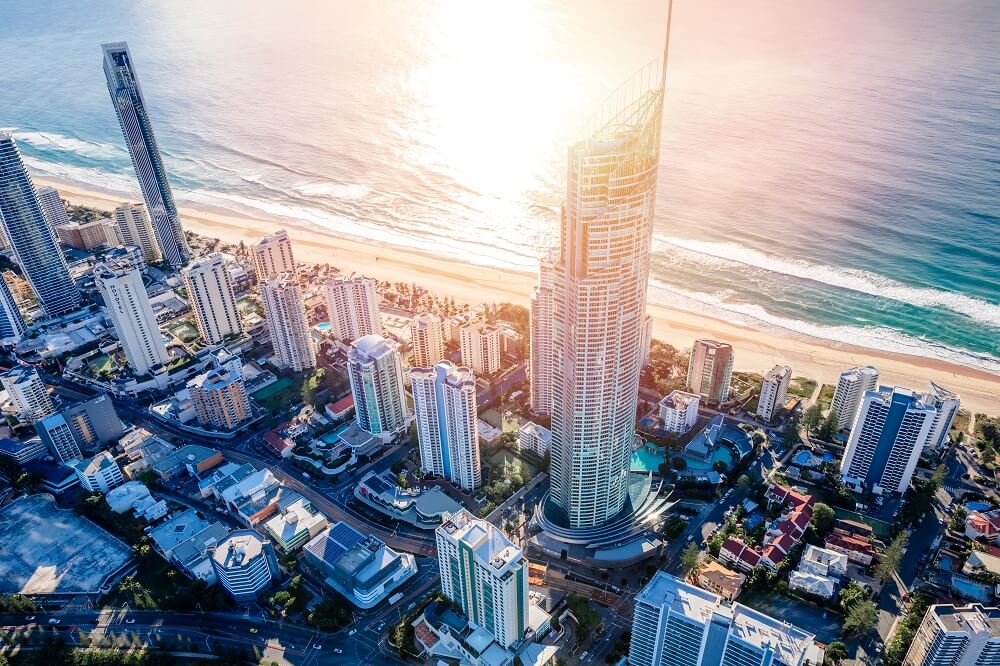Many people looking to buy a rental property end up buying a holiday house or a holiday apartment while they’re in Australia, since many there are just coming out of lockdown, bored of being cooped up, and travelling to well-loved holiday spots. After all, why not? You will not only be an investor, but you will also be adding some luxury to your life.
Whether it’s for spending time with loved ones, getting away from the bustling and bustle of daily life, or even converting this into a guest house, buying a vacation home has unquestionably become a popular lifestyle option. However, apart from making your friends and family envious, there are several other reasons why you would choose this option over simply renting a property.
One of the benefits of investing in Australian property is that the market is relatively stable, especially when compared with other countries around the world, which makes it a relatively safe investment option. Another benefit of buying a holiday home in Australia is that it offers investors a good return on investment (ROI). In fact, according to a 2022 report by the global property consultant Knight Frank, Australian property delivered an average annual ROI of 9.1% between 2009 and 2013.
With numbers such as these, it’s no wonder why so many Down Under are keen on buying this type of properties. Keep on reading to learn our 9 best tips when investing in holiday homes in Australia.
1. Location is everything
In assessing the property valuation of a home, its location is among the most important aspects to consider. It is possible to remodel and improve a home; however, its location cannot be changed. This should go without saying that the first point of consideration when looking for suitable short-term rental properties to invest in is the property’s location.

You’ll need to consider whether you want to purchase a home in a city, a town, or the country before proceeding. After that, you may begin to look at particular sectors that have growth potential. Remember that although its cost should be considered, the property must also be located in a relatively secure and beautiful region to attract tourists.
The first thing you will need to decide on when investing in Australian holiday homes is where you want them. There are some great locations and some not so great locations, and it really depends on the reason that you want a holiday home and who your potential market is. So here we’ll look at some of the best locations for buying holiday homes based on demand and climate.
The Gold Coast
One of the most upmarket destinations in Australia, this location has strong growth outlooks over time with wonderful beaches and fantastic waterways such as Currumbin Creek. This makes it perfect for those looking for premium holiday homes or second homes which can be used all year round even if they’re not on the coast.

This makes it one of the best locations for holiday homes in Australia, and if you’re looking into investing in them then this would be our first choice. Furthermore, its close proximity to Brisbane means that those working there can easily commute, ensuring a steady supply of potential buyers who may need or want a secondary property locally as well as those from further afield looking for their own home away from home on holidays or weekends.
Cairns
Another holiday hotspot, Cairns attracts millions of visitors from around the world every year so is another really strong investment choice. It has a tropical climate all year round, making it perfect for those who love the sun and want to escape the cold winters of their home country.
2. Be aware of short-term rental regulations
It is changing continuously from city to city what the rules are for short-term rentals and how they are enforced. Before you begin renting out your vacation home, check with your local government to ensure that your second-home company is in compliance with the rules and regulations of your state. Consult with local authorities to see if short-term rental properties are subject to zoning restrictions.
Examine the existing zoning condition of the region wherein your vacation property is located, and make certain that you are aware of any planned changes that may have an impact on it. Furthermore, you should check with your local homeowner’s organization to see if there are any restrictions on holiday rentals in your neighborhood.
Many municipalities require vacation homeowners to get a business license or permission in order to rent out their properties on a short-term basis. Check to determine whether that criteria is applicable in your region by calling the number listed above.
3. Budget before buying
These days, figuring out how much you can afford is not a difficult task. Mortgage calculators are abundantly available on the Internet to assist you in figuring out your options. If you just input your income and debt into the calculator, the results will show you how much extra money the banks are willing to offer you.

Over the last decade, there has been a significant shift in the lending climate. Since the conclusion of the frenzied lending practices of recent years, banks have begun placing more strict conditions on those who want to borrow money. In order to qualify, you must make a % down payment and limit your monthly spending for housing and automobiles to no more than 36 percent of your gross income. With the help of a detailed property valuation in Sydney, you can know about the precise price and if it is worth buying or not.
Although if you consider the vacation home to be a possible source of income, don’t expect that revenue to be sufficient to cover the cost of the property. Keep in mind that you do not need to purchase the ultimate beach home complete with vaulted ceilings as well as private docks in order to enjoy the beach. It is OK, to begin with, a minimal holiday home investment.
4. Purchase suitable insurance
For real estate investors to be successful, they must ensure that their holiday homes are appropriately safeguarded in the event of a catastrophic occurrence. One of the most often asked questions by real estate investors is whether a normal homeowner insurance policy would cover their second house.
When renting a vacation home, it is advised that you evaluate your current homeowner’s insurance policy to see if any of the coverage might be transferred to your holiday home rental. The property valuers can also assist you with the best insurance plan for your holiday rental.
According to the experts, you should check your current house insurance policy to see if any of the coverage might be transferred to your holiday home rental property. Nevertheless, when you are renting out holiday homes for the goal of generating money, this will be deemed a commercial activity and will most likely not be covered by your insurance policy.
5. Keep track of the occupancy rate
The occupancy rate can be calculated by dividing the number of nights reserved for a vacation rental by the number of days available. The greatest holiday property investment you can make is one with a better occupancy rate than the one you now have.

Things like the size of the rental, the number of bedrooms, and the amenities available may all possibly contribute to increasing the occupancy rate of a property.
6. Make use of a local real estate agent
Unless you live, work, and play in a certain market, a local real estate agent will understand even more about the location than you would be able to learn even if you spend weeks researching the area. They could also be aware of plans for road improvements, new projects, and zoning changes that might have an influence on the house you’re contemplating purchasing or renting.
7. Consider hiring professional management
Given the fact that management rights to holiday apartments are frequently sold to newly retired couples or to superannuation payees looking for a job in retirement, it is important to make certain that the would-be managers of your property have a proven track record in holiday rental management, as well as a profound understanding of the fiercely competitive holiday accommodation industry.
It might be the distinction between an abandoned apartment and one that is occupied if the management staff is competent and professional.
8. Understand the local and state regulations
In the case of short-term tenants and long-term renters, the requirements are different. Unless they plan to remain for an extended period of time, short-term renters do not have tenants’ rights (28-30 days). In order to persuade a short-term rental into such a long-term rental, be sure to check into both sets of legislation before making your decision.
Having your home up for sale only to discover that it is located in a neighborhood that does not allow short-term rentals or that involves an unanticipated licensing procedure would be the last thing you want to happen.
9. Keep taxes in mind
It is possible that additional taxes may be imposed on holiday houses apart from the property tax. You must include federal income tax when calculating your home-buying budget. In several places within Australia, you are required to collect and pay sales tax.

Generally, the allowance on the deduction of these expenses is 7% of the assessable income before adjusting for any deductible expense. Your visitors are responsible for paying this sales tax in accordance with your rental charges.
Make sure some of your investment properties are capable of earning rent while you’re away on holiday or weekends so you can offset tax but still earn income while they are unoccupied! This option may be only available especially if you have two houses side by side or in a single building with 2 separate entrances (e.g., a duplex).
You are responsible for collecting them and delivering them to the government on a regular basis, so our advice is that you gather information about the applicable taxes before making any property investment in Australia.
Takeaways
Well, it is certainly clear that the holiday rental business is among the most profitable ones if you play your cards right. To make sure about this, you must consider all these above-mentioned tips before investing in holiday rentals in Australia.
About the author

Cindy Mikulski is a professional writer. She writes on property valuations, and related topics in a way that it’s appealing to people and solves their problems. She aims to make a difference through her writing.


